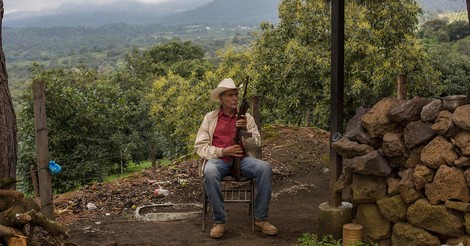Your podcast discovery platform
Curious minds select the most fascinating podcasts from around the world. Discover hand-piqd audio recommendations on your favorite topics.

piqer for: Globalization and politics Global finds
Luis BARRUETO is a journalist from Guatemala. Studied business and finance journalism at Aarhus University in Denmark and City University London.
Explaining The Root Causes Of Mexico's Systemic Violence
In their column at The New York Times, The Interpreter, Max Fisher and Amanda Taub have been following up on Mexico's record-level violence over the past few months.
In October, they delved into the series of missteps and crises that resulted in the growth of organized crime over the past few decades. In it, they argue the country's current situation has roots in the defeat of Colombia's major drug cartels around 20 years ago, which drove the business to Mexico and Central America. This important shift took place at a time when the Mexican political system was in transition from single party rule — the Institutional Revolutionary Party (PRI) was in power from the 1940s until 2000 — to a multiparty system.Three Exceptions To The Rule?
Following up on their original piece, Fisher and Taub recently visited three enclaves of apparent safety and stability. These localities have effectively seceded from the country in order to control rampant violence and endemic corruption in security forces. But despite their relative gains, progress is fragile, and their stories point to the more systemic causes of violence: the weakness of the state and widespread corruption.
Their three pieces delving into these places are well worth your time.
In Monterrey, elites won partial control of the city and tried to use their corporations as replacement institutions, only to fall victim to the same weaknesses they had tried to fix.
Ciudad Nezahualcóyotl, meanwhile, has seceded from the Mexican party system, offering leeway for reformers trying out policy experiments, but they are hardly lessons the rest of the country can apply in short order.
And in Tancíntaro, Michoacán, citizen patrols have been good at providing security, but authority imposed at gunpoint allows for little dissent.
Stay up to date – with a newsletter from your channel on Globalization and politics.
